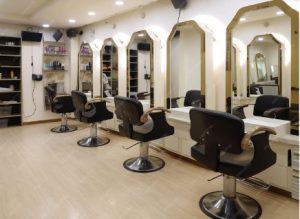Clothes and shoes are not just an essential part of our outfit today. Instead, they’ve become a fashion statement, increasing their demand significantly. Hence, opening a boutique business in Kenya will fetch you massive profits.
To start a boutique business in Kenya, you will need an initial capital of Kshs 250,000 and above. And with a good location, you can expect to earn a daily profit between Kshs 1,500 and Kshs 3,000.
Truth be told, there will always be a demand for clothes and shoes. And this need tends to increase during special events such as Christmas. Hence, opening a boutique that meets the needs of the hour means raking in massive profits!
But how can you ensure you open and sustain the profitability of your boutique?
This piece helps you explore
- The ABCs of a boutique business
- The requirements of a boutique business in Kenya
- Tips to increase your boutique’s profitability
- Commonly asked questions
Let’s dive in!
What Is a Boutique?
A boutique is a business that offers a specialized selection of fashion items. The boutique is categorized as a retail business specializing in distinct clothing, accessories, home decor, and shoes.
It’s important to note that boutiques in Kenya are not limited to selling new clothes. They also incorporate second-hand or Mitumba clothes. However, they are usually carefully selected to match the customers’ needs and preferences.
Again, the boutique business is a free world as you are not limited to the market price. Most shops will sell similar items at different prices, so you can decide how much you sell your products.
How To Start A Boutique Business In Kenya
Now that you know a boutique business in Kenya is profitable, you’re perhaps wondering where to start. Below is a step-by-step guide to help you open your fashion store
Step 1. Research and Plan
Before you open a boutique business in Kenya, you must research the market. Find out what your target market needs, wants, and prefers. Also, learn what is in high demand and what is not, depending on the age group, niche, or profession.
Once you identify a specific group of people you should focus on, create a suitable list of items. Then, develop a business plan to help you open and run a successful venture.
A business plan is essential as it outlines the following elements of our business:
- Business goals
- The initial cost
- Types of clothes
- Business location
- Target customers
It helps you strategize to start and grow your business in the long run.
Step 2. Find A Suitable Boutique Location
Your business location determines your store’s visibility and accessibility. Finding an unobstructed space where prospective customers can easily see and visit your boutique will attract many visitors to explore your products.
In addition, consider setting up your business in a location with utilities such as electricity, water, and garbage collection. This will facilitate the smooth operation of your business.
What’s the rent range of the location? Identifying a location with affordable rent is also essential to avoid financial strains and increase your business profitability.
Step 3. Acquire the Necessary Documents
Now that you have identified a good location and understand the market, you should secure all the necessary documents to run your business seamlessly. The primary legal requirement is business registration.
You can complete the business registration process online on the eCitizen website. Normally, they require basic documents such as your KRA pin and identification card if you register for a sole proprietorship category.
However, collaborating with others to register a limited company or partnership might require more documents.
When you complete the registration process, visit your county offices to apply for a business license. This document usually takes up to two weeks to process so you can start operating your boutique.
Step 4. Find The Best Boutique Suppliers
The supplier you collaborate with determines your products’ quality and buying price. As a result, you must ensure you identify the best-priced and top-quality supplier in your location. And if it means importing from neighboring countries or overseas, then do it to boost your business growth and success.
How do you connect with the right supplier?
Start by attending fashion conferences and seminars to connect with established businesspersons. This will help you learn pro tips to run and identify the right products for the season.
In addition, you should join valuable social media platforms that focus on promoting business growth and development. Some of these groups include Tujengane, where business people refer suppliers to each other.
Step 5. Hire Suitable Staff
It’s common for people in the corporate world to search for top talent when hiring. You should apply this too in your search for apprentices or full-time employees. Find out whether the candidates are well-acquainted with the different types of clothes, accessories, and footwear.
Interview them on customer service skills; can they handle difficult clients?
This will set up a favorable environment for your business to grow. Clients will trust your business and seek more products in the future, building you a large client base.
Step 6. Set Up Your Shop
Time to set up your business for success!
You have all the basic elements to open a boutique business in Kenya at this stage. But you can implement the following final touches.
- Branding: Write your business on the store’s top front using attractive colors to increase its visibility. You can also paint your store with similar colors to enhance your brand.
- Basic Marketing: Selling demands that you direct your clients to your store with a signboard branded with your name and an arrow leading them to your boutique business.
- Organize: Complete the setup stage by arranging the products according to type, size, and color. This will appeal to your clients, giving them a great shopping experience.
Step 7. Market Your Boutique Business
Want to increase your reach?
Or to increase your customer base?
Marketing can help you enhance your reach, leads, and sales.
Unlike in the past, the digital world has made the globe a small space you can reach within seconds. As a result, your boutique business doesn’t have to be restricted by the boundaries of your town, county, or province.
You can set up social media accounts and implement a marketing campaign to reach and sell more products online. Moreover, some people in your location might encounter your business online for the first time, adding to your pool of clients.
Also Read:
- How To Start a Successful Cosmetic Business In Kenya In 2024
- 15 Most Profitable Side Hustle Ideas In Kenya For 2024
- How To Start a Soap-Making Business In Kenya
Tips To Increase Your Business Profitability
Starting a boutique business can be easy, especially if you have ready capital. However, sustaining its profitability in the long run can prove challenging. Thanks to these pro tips, they help you accomplish the goals you put down on your business plan
Tip 1. Bookkeeping is Key
Understanding the cash exchange in your business helps you track how much goes out and how much comes in. As a result, you can compute the profits and losses incurred by your business.
Bookkeeping helps you identify which elements spend most of your income. Hence, develop a strategy to cut costs.
In addition, accounting helps you track any theft cases by your employees. By now, you’re aware of the multiple theft cases in Kenyan businesses, so keep your book records to identify when you get robbed!
Tip 2. Create a Growth Strategy
Where do you visualize your business in a year or five years?
Having business expansion goals will prompt you to develop a fitting strategy to realize them. You can start with simple objectives like introducing new products, then seek professional help from business experts to open more boutique branches in different locations.
Of course, this will heavily rely on factors such as the
- Demand
- Your current income
- Updated business requirements
- Your overall reach
Tip 3. Enhance Your Boutique’s Appearance
Make your boutique look good by adding mirrors and fitting rooms. This will allow your clients to see how they look in your products.
In addition, you should have different sections for men, women, and children. It will be easy for your customers to find the items they want within the shortest time possible.
Tip 4. Use Your Clients’ Feedback
Your customers can be great informers, especially regarding trends in the fashion world. When several clients ask for a new item, it’s obvious the product is in high demand. Hence, you should find out more about it and source for it if it’s profitable.
Tip 5. Stand Out From Your Competition
Once you open a boutique, competition is the most likely business encounter, especially in big towns. Why should customers go to your boutique instead of the rest?
Identify the gaps during your research and leverage them to create an excellent customer experience to appeal more to them. This will help you increase your reach and sales.
Frequently Asked Questions
1. How Much Does It Cost To Start a Boutique?
The initial capital of a boutique business in Kenya varies depending on the location, size of your store, and type of clothes. Typically, you will spend Kshs 100,000 to Kshs 200,000 in small towns. In contrast, cities like Nairobi and Nakuru require a capital of Kshs 500,000 and above.
2. Is A Boutique A Profitable Business?
Yes, with a good location, a boutique business in Kenya is profitable. You can expect to make a minimum of Kshs 1,500 daily profits.
This figure spikes especially during the festive seasons like Christmas when people go on clothes shopping sprees.
Ready To Start A Boutique Business?
The boutique business in Kenya is lucrative. Yet you have to identify a suitable location, develop a business plan, hire the right staff, connect with reliable suppliers, and set up your business to enjoy its massive profits.
Fortunately, you can start small and grow gradually; you don’t have to possess a lot of cash. So don’t hesitate to open your boutique due to capital constraints.
Want to explore more investment ideas? Here is a collection of guides and expert tips to help you accomplish your financial goals!







